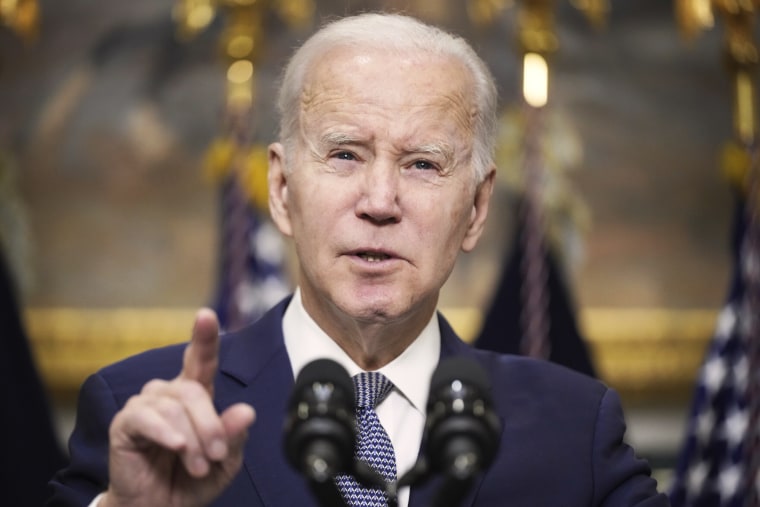President Joe Biden’s recent decision to sign a Republican-backed bill blocking criminal justice reforms backed by Washington, D.C.’s city council remains one of the worst moves of his presidency so far.
But it appears the president is already looking to do some course correction.
After Biden quietly signed the bill — House Joint Resolution 26 — into law in late March, I wrote for the ReidOut Blog that Republicans quickly set their sights beyond Washington, D.C.’s criminal code and started preparing to roll back other policing reforms the district passed back in 2020.
Biden opened Pandora’s box by signing off on a ploy to usurp power from a majority-Black city council.
Biden opened Pandora’s box by signing off on a ploy to usurp power from a majority-Black city council, backed by a largely Black city. It made him complicit in a broader push by Republicans to undermine Black voters. It flew in the face of Biden’s previous calls for Washington, D.C., statehood. And it fed Republicans’ seemingly insatiable appetite for illiberal legislation.
Sure enough, on Wednesday, Republicans on the House Oversight Committee voted to approve a new bill overturning the district’s 2020 police reforms, known collectively as the Comprehensive Policing and Justice Reform Amendment Act. The package was passed by the D.C. Council following the killings of George Floyd and Breonna Taylor.
As The Washington Post reported in early March:
The bill [Comprehensive Policing and Justice Reform Amendment Act] was first passed as temporary emergency legislation in July 2020, and many of its provisions have been part of police policy for nearly three years. The bill adds civilians to disciplinary review boards and gives voting rights on those boards to an independent agency that reviews police conduct. It limits police searching people or property based on getting consent, instead of a warrant, and restricts the use of less-than-lethal weapons during riots and the use of military-grade equipment. The bill also requires police to make video from body-worn cameras public when police shoot people, and the public disclosure of those officers’ names, which has now been routine for years.
Republicans have repeatedly tried to portray Washington, D.C., as a hellscape unworthy of self-governance. Biden, with a few pen strokes in March, effectively agreed when he overturned changes to the district’s criminal code and said some of its punishments weren’t harsh enough. But White House press secretary Karine Jean-Pierre said Thursday that Biden would veto the new legislation if it passes in the Senate.
"The president believes that building community trust is integral to fighting crime," she said during a news briefing. "While he does not support every provision in the D.C. policing bill, he will not support congressional Republicans’ efforts to overturn commonsense police reforms."
It’s welcome news that Biden, at least for now, won’t be party to any more illiberal power grabs. It’s also good news that the president is interested in building community trust. One way for him to start? Apologize to the voters of Washington, D.C.

